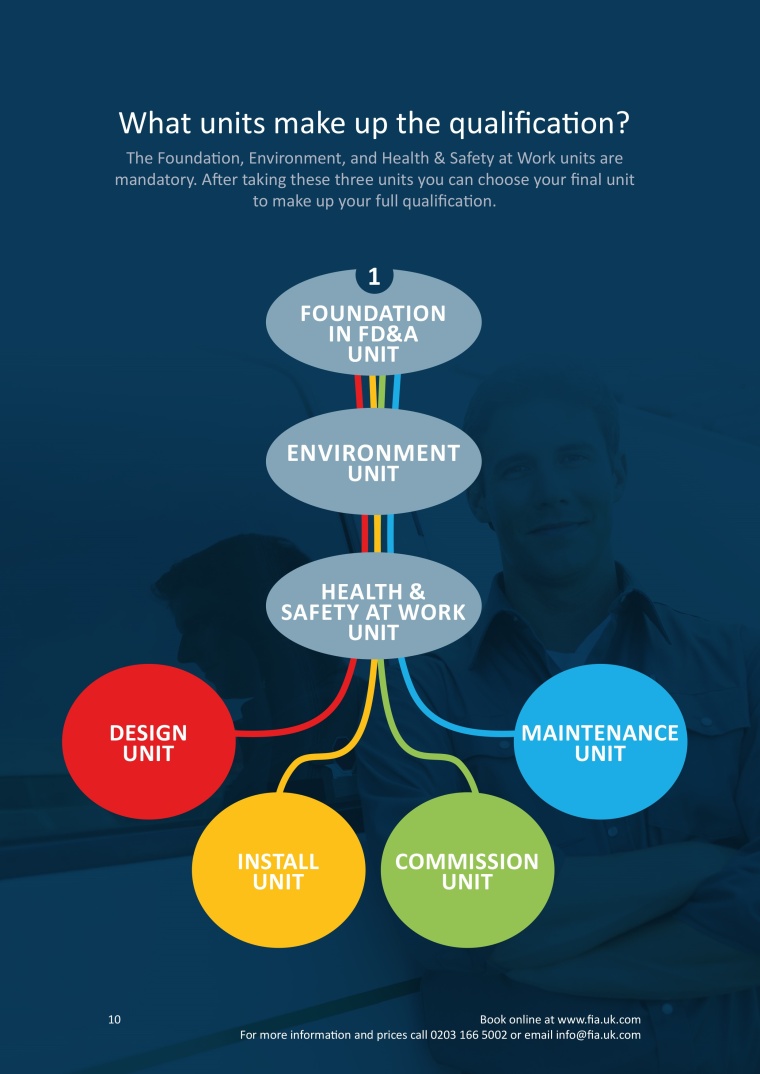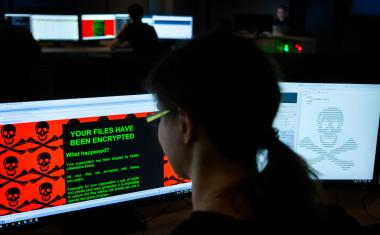New Qualifications in Fire Detection and Alarms
A new standard was published earlier this year but unlike other standards, it does not specify technical aspects such as how a fire safety product should be designed or maintained...

A new standard was published earlier this year – but unlike other standards, it does not specify technical aspects such as how a fire safety product should be designed or maintained. Instead, the new standard, EN 16763 ‘Services for Fire Safety and Security Systems’ focuses purely on service delivery. It has been almost five years in the making, but the new standard explores every part of the service – from planning, through to design, to commission, installation, and handover to the client.
The standard clarifies what should be the expected level of service at each individual stage, bringing a new benchmark of quality to the fore of the fire industry. The problem is that when anyone purchases a service, it can be difficult to understand what you’re getting. Are you getting a good level of service for your money? Are you being ripped off? Do the service engineers have a good working knowledge and understanding of what they’re doing?
The objective of EN 16763 is to give that clarification. As a service provider, the competency of each individual member of staff is vital. EN 16763 clearly defines what level of education those working in the fire and security services industries should actually have, meaning that there is now a prerequisite to entry to the industry (for which there was none before). And what is that prerequisite? A formal qualification.
Although this new standard isn’t mandatory by law, it is incredibly necessary: at this moment in time, there is no way of determining the quality of service that a company currently provides prior to purchasing. This standard aims to improve the quality of service delivery by specifying the level of competence, knowledge, and understanding of a company and the individuals employed by that company. But why would it be necessary to specify the minimum levels of service that should be expected?
The Need for Qualifications
It’s all linked to education. Education across the whole of Europe and in particular the level of education required to do the jobs that we do in the fire industry. The standard sets out the minimum level of education and experience that should be required in order to service a life safety system – something that has never been specified before. There is a real need to create a uniform achievable baseline from which everyone can work. This new standard effectively aims to quash those without the correct education and experience out of the industry in order to balance out the level of service provided by the wide range of companies in the market, bringing the level of professionalism in the industry even higher. This not only gives buyers confidence in what they are getting, it also gives them a better idea of what level of service to expect.
In a nutshell, EN16763 lays out a Europe-wide benchmark of quality that should be expected and maintained throughout the industry. It sets out all the pre-requisites for the level of skills, knowledge, and education that should be expected. This is a real opportunity to raise the quality of services in the fire and security industries across the whole of Europe. Thankfully, the Fire Industry Association (FIA) will be launching a line of formal qualifications later this year that are a level higher than EN16763, so this is an important first step towards formalising the industry in this way. And there is a need for that at this moment – that’s why the FIA and many other industry professionals have strived to create this new standard – to set out the level of education and experience that individuals must have in order to do the jobs that they say they can do.
What Is on the New Qualifications?
The FIA, in conjunction with the new Awarding Organisation for the fire industry, the FIA AO, is going to be releasing not one, but four new formal qualifications in fire detection and alarm systems within the next couple of months.
But before we talk about the actual content of the qualifications themselves – what actually is the FIA AO? The FIA AO (Fire Industry Association Awarding Organisation) is a nationally regulated organisation that is externally quality assured by OFQUAL, QIW and CCEA specifically for the purpose of setting qualifications. The same regulators are responsible for the standards adhered to by the awarding bodies of qualifications studied through schools and colleges nationwide. Therefore, learners and business owners looking to embark on the new qualification pathway can be assured of the quality mark of the new qualifications and that the qualifications on offer are validated and properly approved with the relevant government authorised qualification bodies.
As for the qualifications themselves, the FIA AO has developed 4 qualifications each for the job roles of installer, maintainer, designer, and commissioner of fire detection and alarm systems. Each qualification is made up of 4 units, and all 4 units have to have a pass recorded against them in order to achieve the qualification.
“The first unit is a Foundation unit, which is covers the common aspects of fire safety across all four roles including legislation and guidance, technology and how they relate to each other,” explained Ian Gurling, FIA AO Manager. “Once you’ve completed the Foundation you can complete the other units in any order you want. We have a Health & Safety unit, and an Environmental unit – so in that [the Environmental unit] we’re covering the environmental impact of a fire alarm system; for example, how to transport and handle ionisation detector heads how to handle gaseous systems if you’re working on them in any way.”
“We’ve also got the role specific advanced unit for the design, install, maintain, and commission. Once you’ve got all four units recorded as a pass, you’ve got your qualification.”
So what level of detail do the qualifications go into and what sort of technical content can we expect?
The qualifications call for an in-depth technical knowledge, so it’s not just a simple matter of knowing the standards – technicians will have to be able to apply that knowledge. The qualifications also explore many other areas such as legislation and the different technologies involved in a fire detection and alarm system. How does a point detector work? How does a beam detector or an aspirating detector work? What are the effects of a sound alarm system? What about the difference between bells and sounders?
A Way Forward
The difference here is that technicians will be able to develop professionally much further than before, because of the level of thinking required for the qualification. No longer will technicians simply be able to perform the various tasks that they need to carry out – they will be able to use their knowledge of standards and legislation to know why certain things need to be done a certain way.
Unlike during any other form of training, where assessments are just a test, the qualification examinations are a much more formal process. The benefit here is clear: a formal exam means that candidates must demonstrate not just that they can parrot out the information they have been given ad nauseum, but be able to analyse, apply, and answer the examination questions correctly. Hopefully, this will mean that technicians will be able to do the same once they are out working in the field, using their new knowledge and deeper understanding to analyse and solve problems.
Bottom line: the industry needs qualifications following the release of the new services standard, EN 16763. The FIA have clearly listened and responded to the needs of the industry by creating four new qualifications for the designer, installer, maintainer, and commissioner – we will just have to wait patiently until they announce when they will be available to book. And after that – who knows? Maybe it will change the industry for the better.
The new qualifications will be available to book soon. For more information, go to www.fia.uk.com, or find us on our brand new Facebook page www.facebook.com/thefireindustry/













